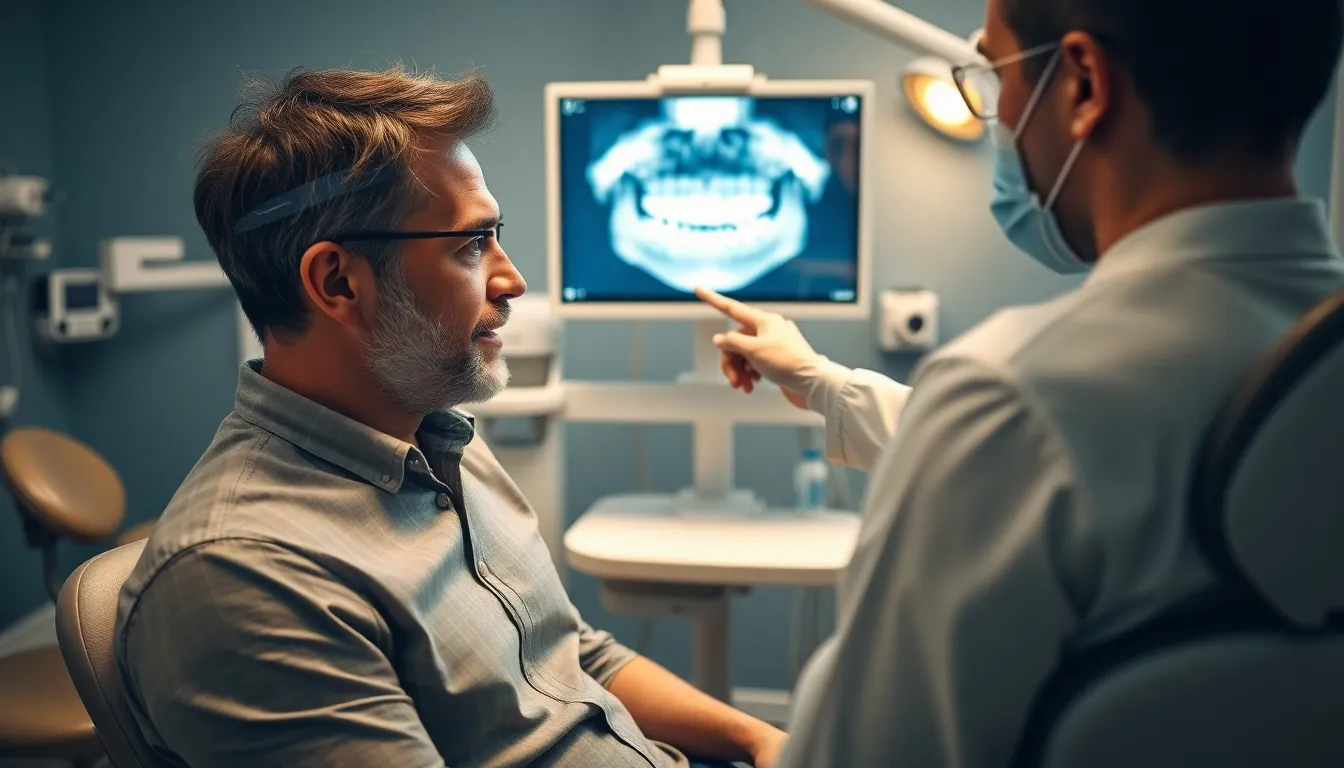Does Medicaid cover wisdom teeth removal? It’s a critical question if you’re facing painful impactions or dental complications on a tight budget. Understanding your coverage options could save you hundreds—even thousands—of dollars in unexpected dental expenses.
Wisdom teeth extraction is a common procedure that many Americans need at some point in their lives. While Medicaid coverage varies by state, age, and exact circumstances, handling these benefits doesn’t have to be overwhelming. We’ll break down exactly what Medicaid typically covers for wisdom teeth removal, eligibility requirements, and what steps you’ll need to take to maximize your benefits.
Understanding Medicaid Coverage for Dental Procedures
Medicaid dental coverage varies significantly across different states, with each state determining its own set of covered services and eligibility requirements. Basic dental services like cleanings, exams, and fillings are typically covered in most states, though coverage for more complex procedures remains inconsistent. Adult dental benefits are often more limited than those for children, with many states providing only emergency dental services for adults.
Basic vs. Complex Dental Procedures
Basic dental procedures covered by Medicaid commonly include preventive services such as regular cleanings, X-rays, and fluoride treatments. These essential services help maintain oral health and prevent more serious dental issues. Restorative treatments like fillings for cavities are also frequently covered, ensuring that basic dental problems don’t escalate into more complex conditions.
Complex dental procedures receive varying levels of coverage depending on your state’s Medicaid program. Root canals, crowns, and bridges might be partially covered in some states while completely excluded in others. Orthodontic treatments are typically only covered when deemed medically necessary rather than for cosmetic purposes.
Dr. Todd B. Harris notes, “I’ve seen patients struggle to understand their Medicaid dental benefits, especially for complex procedures. One patient, Maria, was shocked to learn that her state’s Medicaid would cover her daughter’s wisdom teeth extraction because it was causing pain and infection, but wouldn’t cover her husband’s because his was deemed preventative rather than immediately necessary.”
State-by-State Variations in Medicaid Dental Coverage
Comprehensive dental coverage states like New York, California, and Washington offer extensive benefits including preventive, restorative, and some complex procedures. These states recognize the importance of dental health to overall wellbeing and provide broader coverage options for Medicaid recipients.
Limited coverage states such as Florida, Alabama, and Texas typically offer only emergency dental services or very basic preventive care. Residents in these states often face important out-of-pocket expenses for procedures beyond emergency extractions or pain relief.
Emergency-only states, including Arizona, Delaware, and Tennessee, provide dental coverage exclusively for urgent situations. Coverage in these states typically extends only to treatments that address severe pain, infection, or trauma requiring immediate attention.
Age-Based Differences in Coverage
Children’s dental coverage under Medicaid is comprehensive thanks to the Early and Periodic Screening, Diagnostic and Treatment (EPSDT) benefit. This federally mandated benefit ensures children receive all necessary dental services, including preventive care, fillings, and even orthodontic treatment when medically necessary. Regular checkups, cleanings, fluoride treatments, and sealants are standard preventive services covered for children.
Adult dental coverage is considerably more restricted in most states. While some states offer comprehensive dental benefits for adults, many limit coverage to emergency services only. These limitations often exclude preventive care and routine treatments, focusing instead on addressing acute dental issues like severe infections or trauma.
Does Medicaid Cover Wisdom Teeth Removal?

Medicaid coverage for wisdom teeth removal varies significantly based on age, medical necessity, and state policies. Understanding these variations can help you access the dental care you need while minimizing out-of-pocket expenses.
Adult Coverage Policies
Adult Medicaid dental benefits typically limit wisdom teeth removal to medically necessary or emergency situations. Most states only cover extractions when impacted wisdom teeth cause severe pain, infection, or other serious complications. For adults over 21, coverage generally applies only to emergency circumstances, such as bony impactions that pose important health risks. When covered, Medicaid usually includes related services like anesthesia, X-rays, necessary medications, and follow-up appointments. Unfortunately, many states restrict adult dental benefits to emergency services exclusively, leaving preventive or elective wisdom tooth removals uncovered. This limitation often forces patients to wait until their condition becomes severe enough to qualify as an emergency before seeking treatment.
Dr. Todd B. Harris notes, “I’ve seen many adult patients delay wisdom teeth removal due to coverage concerns, only to end up with more complicated and painful conditions that could have been prevented with earlier intervention.”
Coverage for Children and Teens Under 21
Federal law mandates more comprehensive dental coverage for Medicaid recipients under 21 years old. This coverage includes wisdom teeth removal when deemed medically necessary, making it more accessible for younger patients. Since wisdom teeth typically emerge between ages 17-25, many teens can benefit from this coverage before facing more limited adult benefits. The Early and Periodic Screening, Diagnostic, and Treatment (EPSDT) benefit ensures children and adolescents receive preventive and corrective dental services, including extraction of problematic wisdom teeth to prevent future complications. Coverage for this age group extends beyond emergency treatments to include preventive care, making it easier to address wisdom teeth issues before they become severe problems.
State-by-State Variations in Medicaid Dental Coverage

Medicaid dental coverage varies dramatically across the United States, creating a patchwork system where your access to wisdom teeth removal depends largely on where you live. These variations can mean the difference between full coverage and important out-of-pocket expenses for the same procedure.
States With Comprehensive Coverage
Comprehensive Medicaid dental coverage exists in 18 states, offering extensive benefits that typically include wisdom teeth extractions when deemed medically necessary. Alaska, California, Colorado, Idaho, Illinois, Iowa, Maine, Montana, North Carolina, North Dakota, Ohio, Oklahoma, Oregon, South Dakota, Virginia, Washington, West Virginia, and Wisconsin provide more robust adult dental benefits. Medical necessity criteria generally include severe pain, infection, damage to adjacent teeth, difficulty chewing, or risk of future complications.
Dr. Todd B. Harris notes, “In states with comprehensive coverage, I’ve seen patients get the care they need without financial strain. One patient in Washington was able to have all four impacted wisdom teeth removed through Medicaid after experiencing recurring infections, completely changing her quality of life.”
States With Limited or Emergency-Only Coverage
Limited coverage states restrict Medicaid dental benefits to exact circumstances, often creating barriers to preventive wisdom teeth removal. Arizona, Florida, Hawaii, New Hampshire, and Texas fall into the emergency-only category, covering extractions solely during urgent situations involving severe pain or infection. For example, Texas Medicaid only approves wisdom teeth removal when impacted teeth cause important discomfort requiring immediate intervention.
States with limited but non-emergency coverage include Arkansas, Kansas, Kentucky, Louisiana, Mississippi, Nebraska, Pennsylvania, South Carolina, and Wyoming. These states typically don’t cover routine dental care or elective wisdom teeth removal, even when recommended by a dentist to prevent future problems.
A patient in Florida shared her experience: “My wisdom teeth were starting to cause discomfort, but Medicaid wouldn’t cover removal until I developed a serious infection that sent me to the ER. By then, the procedure was more complicated and my recovery more difficult than if I’d received preventive care.”
The stark differences between states create important healthcare disparities, with residents of comprehensive coverage states enjoying access to preventive wisdom teeth removal while those in limited coverage states often wait until painful emergencies develop before receiving care.
When Medicaid Will Cover Wisdom Teeth Extraction

Medicaid coverage for wisdom teeth extraction varies based on exact factors including age, medical necessity, and your state of residence. Understanding these requirements helps you determine if your procedure qualifies for coverage.
Medical Necessity Requirements
Medical necessity forms the cornerstone of Medicaid approval for wisdom teeth removal. Your dentist must document that the extraction is essential to treat or prevent serious dental or health complications. Medicaid typically considers extractions necessary when wisdom teeth are impacted and causing pain, infection, or damage to adjacent teeth. Severe dental infections requiring immediate intervention also meet the criteria for coverage. Bony impactions presenting risks of cysts or other complications are generally covered due to their potential for serious health issues. Documentation from your healthcare provider should clearly demonstrate these concerns through clinical notes, diagnostic imaging, and treatment recommendations.
Dr. Todd B. Harris notes, “I’ve seen many patients struggle with severe infections from impacted wisdom teeth that could have been prevented with earlier intervention. These cases almost always meet Medicaid’s medical necessity requirements because the health risks are important and well-documented.”
Prior Authorization Process
The prior authorization process serves as a gateway to Medicaid coverage for wisdom teeth extraction. Most state Medicaid programs require this step before approving the procedure. Your dentist submits clinical documentation including X-rays, dental evaluations, and treatment plans to your state’s Medicaid dental administrator. These materials undergo review to confirm the procedure meets coverage criteria established by your state’s Medicaid program. The authorization process typically takes 7-14 days, though emergency situations may qualify for expedited review. Complete and thorough documentation significantly increases your chances of approval, so working closely with your dental provider during this process proves essential.
Finding Medicaid-Approved Dental Providers

Locating dentists who accept Medicaid is a crucial step in getting your wisdom teeth removed through the program. Your state’s official Medicaid website serves as the primary resource for finding approved dental providers in your area. These websites typically offer searchable directories where you can filter specifically for dentists who perform wisdom teeth extractions.
State Medicaid offices also provide assistance in finding appropriate dental care. Many patients have successfully connected with qualified providers by calling their local Medicaid office directly. Lisa M. from Colorado shares, “I was struggling to find a dentist for my impacted wisdom tooth until I contacted my state Medicaid office. They connected me with a provider just 15 minutes from my home who accepted my coverage.”
When searching for providers, verify their current participation status before scheduling appointments. Provider participation in Medicaid programs changes periodically, so confirmation saves time and prevents unexpected expenses. Contact the dental office directly to confirm they accept your exact Medicaid plan, as acceptance varies even among participating providers.
Alternative resources exist for those struggling to find Medicaid providers. Community health centers and dental schools often accept Medicaid patients and offer reduced-fee services for wisdom teeth extractions. These facilities frequently work with Medicaid recipients and understand the authorization requirements for wisdom teeth removal.
Federally Qualified Health Centers (FQHCs) represent another valuable option for Medicaid patients seeking dental care. These centers receive federal funding to provide healthcare services, including dental care, to underserved populations regardless of their ability to pay. FQHCs typically employ dentists familiar with Medicaid coverage guidelines for procedures like wisdom teeth extraction.
Alternative Options When Medicaid Won’t Cover Removal

Finding affordable wisdom teeth removal when Medicaid doesn’t cover it can be challenging but isn’t impossible. Several alternative options exist for those facing this common dental dilemma.
Dental Schools and Teaching Clinics
Dental schools offer significantly reduced rates for wisdom teeth extractions performed by supervised dental students. These teaching institutions provide quality care at 30-60% lower costs than private practices. Patients receive treatment from students who are closely monitored by experienced faculty dentists, ensuring proper care while helping future dentists gain valuable experience.
Community Health Centers
Federally Qualified Health Centers (FQHCs) provide dental services regardless of your ability to pay. These centers typically charge on a sliding fee scale based on your income and family size. Many FQHCs offer comprehensive dental services including wisdom teeth extractions at fractions of private practice costs.
Dental Payment Plans and Financing
Many dental offices offer in-house payment plans allowing you to spread the cost of wisdom teeth removal over several months. Third-party financing options like CareCredit or Lending Club provide dental-exact credit lines with promotional interest-free periods ranging from 6-24 months for qualifying patients.
Dental Discount Plans
Dental discount plans function differently from insurance by offering reduced rates (typically 15-50%) for dental procedures at participating providers. These plans involve a low annual membership fee rather than monthly premiums and provide immediate discounts without waiting periods or annual maximums.
Charitable Organizations and Dental Assistance Programs
Nonprofit organizations like Dental Lifeline Network and America’s Dentists Care Foundation occasionally provide free or low-cost dental services including extractions. Local charitable clinics run by religious organizations or community foundations may offer periodic free dental days where wisdom teeth extractions are performed at no cost.
Dr. Todd B. Harris notes, “I’ve seen patients save thousands by combining resources—using a dental school for the procedure, applying for assistance programs for medications, and working with social services for transportation. Don’t assume there’s no help available just because Medicaid denied coverage.”
Conclusion
Handling Medicaid coverage for wisdom teeth removal requires understanding your state’s exact policies and the medical necessity of your procedure. While coverage varies significantly across states your options aren’t limited even if Medicaid denies your claim.
Remember to verify provider participation document medical necessity and explore alternatives like dental schools community health centers and payment plans. Children under 21 typically have more comprehensive coverage through the EPSDT benefit.
Don’t let financial concerns prevent you from addressing painful or problematic wisdom teeth. With proper research and preparation you can find affordable answers that protect both your oral health and your wallet. Take action today by contacting your state Medicaid office to learn about your exact coverage options.
Frequently Asked Questions
Does Medicaid cover wisdom teeth removal?
Medicaid coverage for wisdom teeth removal varies by state. Generally, coverage is more comprehensive for recipients under 21 years old. For adults, most states only cover extraction when medically necessary (such as severe pain, infection, or impacted teeth). The procedure must typically be pre-authorized and performed by a Medicaid-approved provider.
How do I know if my wisdom teeth removal is considered “medically necessary”?
Wisdom teeth removal is considered medically necessary when there’s documented evidence of pain, infection, damage to adjacent teeth, cysts, tumors, or other pathological conditions. Your dentist must provide clinical documentation showing these issues. Preventive removal without symptoms is rarely covered by Medicaid, even if your dentist recommends it to avoid future problems.
What states offer the best Medicaid dental coverage for wisdom teeth?
Approximately 18 states offer comprehensive adult dental benefits that include wisdom teeth extraction when medically necessary. States like New York, California, Washington, and Massachusetts typically provide more extensive coverage. However, policies change frequently, so check your state’s current Medicaid dental benefits through your state’s Medicaid website or by contacting your local Medicaid office.
How do I find a dentist who accepts Medicaid for wisdom teeth removal?
Find Medicaid-approved dentists through your state’s Medicaid website provider directory or by calling your Medicaid program’s customer service. Community health centers, Federally Qualified Health Centers (FQHCs), and dental schools often accept Medicaid patients. Always verify a provider’s current participation status before scheduling, as acceptance can change.
What documentation do I need for Medicaid to cover my wisdom teeth extraction?
You’ll need a referral from your primary dentist documenting the medical necessity of the extraction, including X-rays showing impaction or other dental issues. Your oral surgeon must submit a prior authorization request with clinical evidence of pain, infection, or other complications. Personal identification, your Medicaid card, and proof of eligibility are also required.
What alternatives exist if Medicaid won’t cover my wisdom teeth removal?
If Medicaid denies coverage, consider dental schools (50-70% savings), community health centers (sliding fee scales), dental payment plans, or financing options like CareCredit. Dental discount plans offer 15-50% savings with participating providers. Charitable organizations like Dental Lifeline Network or Mission of Mercy events provide free services to qualifying patients. Always ask about all available financial assistance options.
Does Medicaid cover emergency wisdom teeth extraction?
Most state Medicaid programs cover emergency wisdom teeth extractions, even in states with limited dental benefits. Emergency situations include severe pain, acute infection, facial swelling, or abscesses. Contact your Medicaid office immediately if experiencing severe symptoms, as emergency procedures may bypass the usual prior authorization requirements.
How long does Medicaid approval for wisdom teeth removal take?
The prior authorization process typically takes 7-14 business days for non-emergency wisdom teeth removal. Your dentist submits clinical documentation to the state Medicaid program for review. Emergency cases may qualify for expedited review or retroactive approval. Start the process well before any scheduled procedure to ensure coverage is in place.







